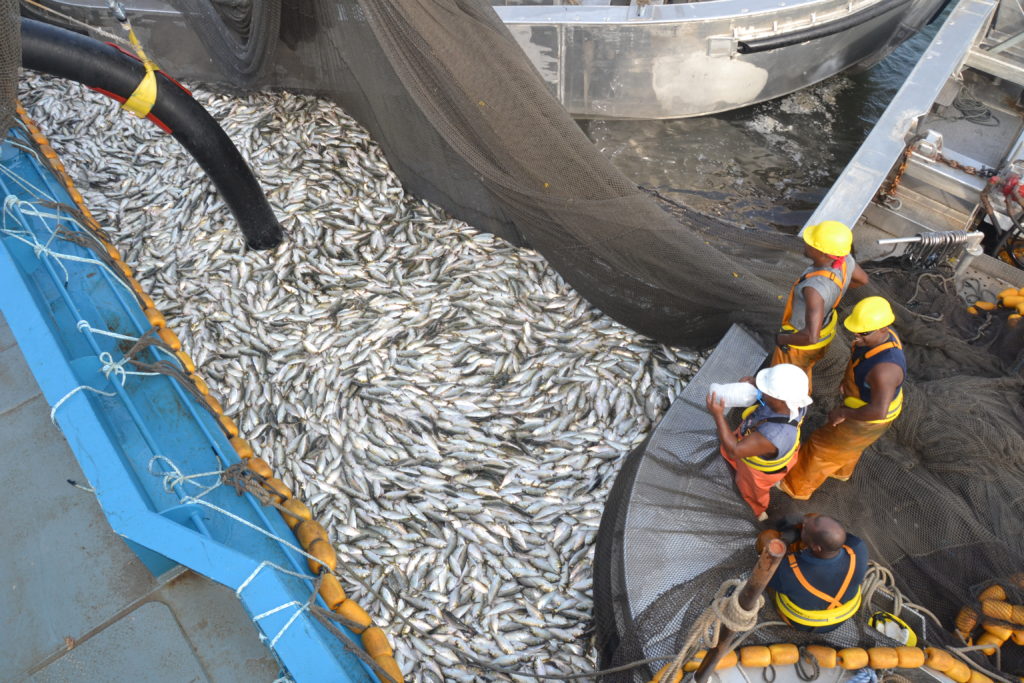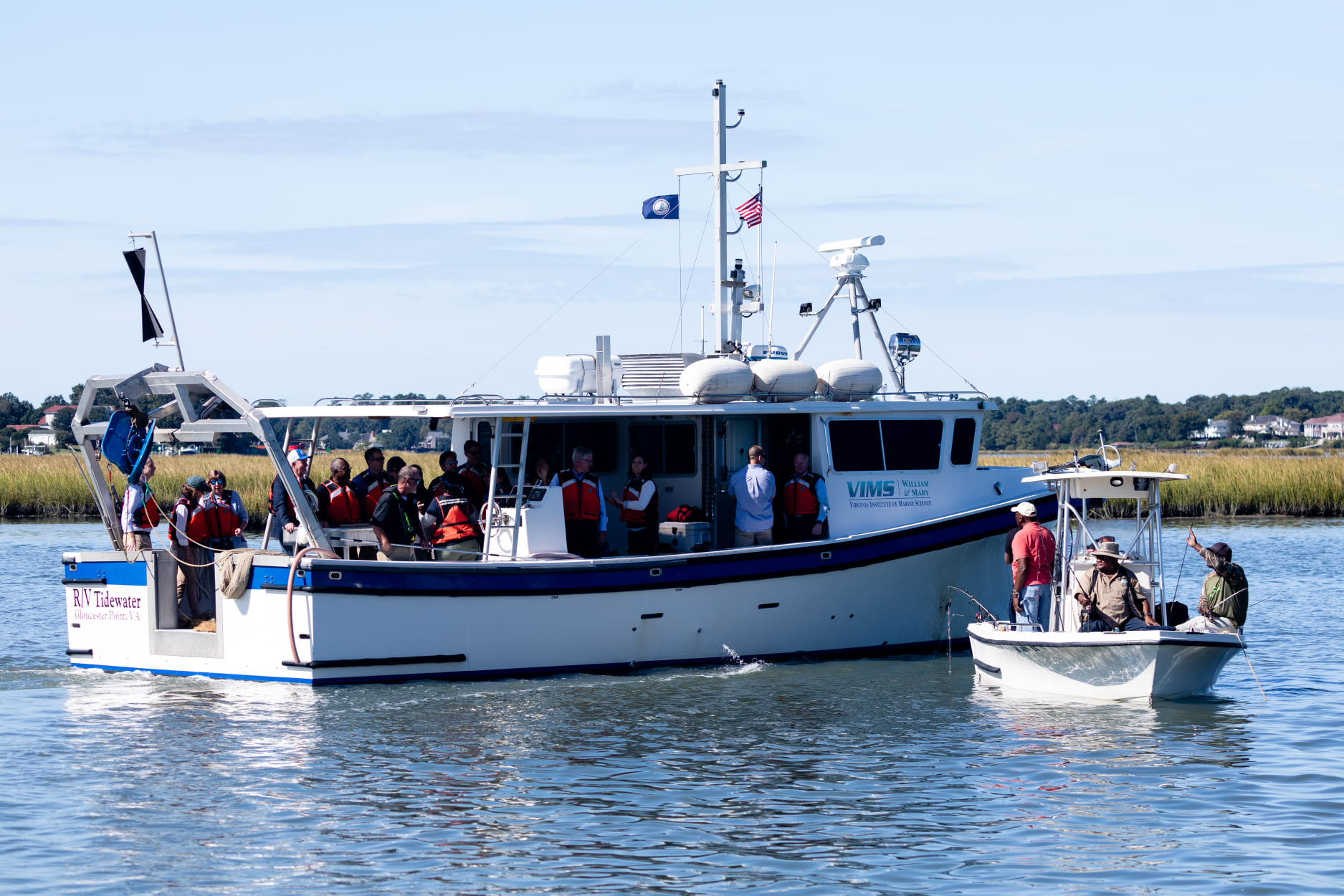A group of anglers in Maryland has taken legal action against Virginia fishery managers over harvesting of menhaden in the Chesapeake Bay—a lucrative little fish for Omega Protein that is also a forage fish for larger Bay species.
Chesapeake Legal Alliance on behalf of the Southern Maryland Recreation Fishing Organization (SMRFO) filed a lawsuit against Virginia Marine Resources Commission (VMRC) over the commission’s approval of a regulation to increase the state’s menhaden commercial fishing quota.
The suit, filed in the City of Richmond’s circuit court on May 10, alleges that VMRC’s vote in April not to amend a regulation by the Atlantic States Marine Fisheries Commission (ASMFC) that allows an increase in the state’s commercial quota “have the effect of increasing the total menhaden catch by 21,000 metric tons of fish,” harming southern Maryland recreational fishermen and the Bay’s ecosystem.
“This will result in degradation of the menhaden fishery within the Chesapeake Bay and Virginia waters, and will further degrade the bay’s and Virginia coastal ecosystems,” the lawsuit states.
ASMFC, which regulates Atlantic in-state-saltwater harvests of migratory fish, voted Nov. 2022 to set a new ceiling on the coastwide menhaden catch of 233,660 metric tons. That’s a 20 percent increase over the current quota.
The action slightly raised Virginia’s quota of fish coming out of the Atlantic Ocean. ASMFC, however, did not change the cap of 51,000 metric tons of menhaden allowed in Chesapeake Bay.
ASMFC’s increase in commercial quota came about because a 2022 menhaden population assessment concluded that menhaden are not being overfished and the harvest could be increased substantially without endangering the stock population.
VMRC had the option in April to lower the state’s quota. The ASMFC regulation allows that the quota could be lowered by a VMRC vote but not raised.
SMRFO is taking issue that it was not lowered and also argues that the commission acted unlawfully by adopting the regulation in April: the prescribed period to adopt menhaden management regulations is from Oct. 1 to Dec. 31.
Phil Zaiesak, president of SMRFO, said that “for years, the public has called for more responsible limits on the amount of menhaden that can be fished to protect the Bay’s delicate ecosystem.”
Zaiesak noted the ecological importance of the fish as menhaden are food for rockfish, bluefish and weakfish and birds like ospreys and eagles. The fish are also filter feeders which help clean up Chesapeake Bay.
SMRFO is located in Valley Lee, Md., and has 128 members who fish in tidal waters in both Maryland and Virginia. The mission of the group is “to preserve and protect the Maryland fishery resources by protecting the rights of recreational fishermen, supporting research in the sustainability of fisheries and serving the local community by supporting recreation fishing event.”
Virginia menhaden fishermen are allowed 158,000 metric tons of menhaden annually with most of the quota going to the nation’s largest menhaden firm, the Reedville-based Omega Protein. The rest of the state’s quota is caught by independent fishermen who sell menhaden for bait to crab, eel and lobster fishermen.
Omega Protein is the only menhaden reduction firm on the east coast. It reduces the fish down to make fish meal for cattle and poultry feed, fish oil, and other supplements.
“Omega Protein and Ocean Harvesters have no comment on the Chesapeake Legal Alliance litigation against the Virginia Marine Resources Commission,” said Ben Landry, vice-president of Omega’s public affairs. “However it is important to note that scientific stock assessments have determined that the menhaden population is not overfished, nor is the fishery overfishing.”
The suit is asking the court require VMRC to strike the adopted regulation; requiring VMRC to rewrite the regulation in a manner that protects Virginia waters and the Chesapeake Bay; setting a timeline for VMRC to complete its analysis; enact the new regulation; and award the plaintiff court cost and attorney’s fees.
-Larry Chowning



